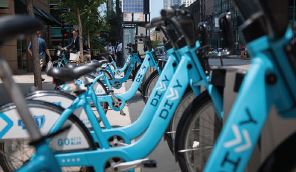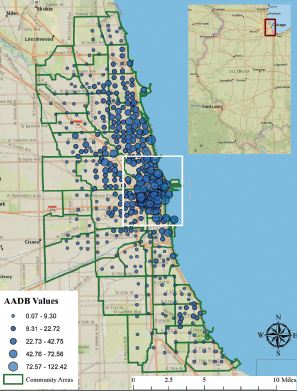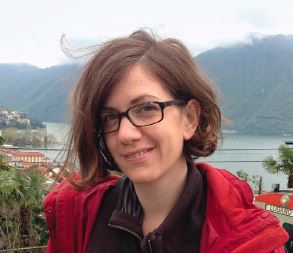When is New Better: Analyzing the Unexpected Challenges of Changing Mobility Patterns
Rapid changes in mobility systems are underway in cities around the world, including the introduction of shared mobility solutions, such as Uber, and field testing of increasingly automated vehicles (driverless cars). These developments present significant opportunities to urban communities, offering prospects of tackling congestion, pollution and accessibility concerns. At the same time, these changes are disrupting the status quo of current mobility systems and present major behavior and governance challenges.
The current research by Dr. Amanda Stathopoulos is addressing emerging mobility-on-demand systems, that is, where consumers rely on temporary access to mobility services rather than ownership. Despite significant interest in these innovations and increasing usage in cities across the world for mobility of passengers and transportation of goods, several important research questions persist concerning the impacts they have on existing transportation systems and mobility habits. The Mobility and Behavior Lab led by Dr. Stathopoulos investigates these issues using a variety of analytical tools applied to empirical data, ranging from small-scale qualitative investigations, to choice experiments and large-scale spatio-temporal datasets.

Dr. Stathopoulos recently studied the Chicago Divvy system, which makes bikesharing trajectory data available to the public. Notably, the expansion and evolution of bike sharing systems is a global phenomenon with strong diffusion in western Europe, Northern America, Singapore and China. In the U.S., 28 million bikeshare trips were taken, across 55 systems in 2016. This diffusion has motivated research to characterize “best practices” for system operations and user impacts. Station-level and community-level models of Chicago bikeshare use reveal that sociodemographic factors play an important role. The results provide guidance for planners to consider when defining what constitutes “successful” bikeshare systems, which factors to concentrate on to improve the probability of increased use, and how to best leverage the observed divergence in impact for different spatial and social communities, in particular related to income, ethnicity and gender.

Dr. Stathopoulos has further explored Chicago neighborhood perceptions of city-wide mobility programs such as bikesharing and what community residents think are the local impacts. Using text mining tools like sentiment analysis applied to community discourses derived from focus group transcripts, we hope to gain insights on the effects of transformative mobility systems. The main contribution of this research is to define how active mobility schemes reap different effects in different types of communities. Such analysis is needed to formulate optimal policies for how cities should design and promote new mobility solutions that serve diverse populations.
There is still scarce scientific evidence of whether new schemes such as mobility-on-demand are enhancing mobility of already privileged groups and whether traditionally under served populations will be able to reap the full benefits from improving bicycle-and pedestrian-oriented development.

More information: http://www.amandastathopoulos.com/
Research is based on:
Biehl, A., Ermagun, A., Stathopoulos, A. (2017) “Community mobility MAUP-ing: A Socio-Spatial Investigation of Bikeshare Demand in Chicago” Journal of Transportation Geography, vol. 66, pp 80-90
Biehl, A., Ermagun, A., Stathopoulos, A. “Towards a framework for identifying success parameters for equitable bike sharing”, presented in Association of American Geographers annual meeting, Philadelphia, 2017
Alec Biehl, Ying Chen, Karla Sanabria, David Uttal, & Amanda Stathopoloulos, A (2017) Tale of Two Communities: Where does active mobility fit within narratives distinguished by space and place? – working paper joining research on travel behavior, spatial learning and text mining
